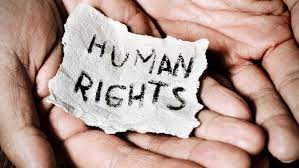
Empowering Individuals: Upholding Rights in Society
The Importance of Upholding Rights in Society
Rights are the fundamental principles that ensure every individual is treated fairly and with dignity in a society. They serve as the foundation for a just and equitable community where all members have the freedom to express themselves, make choices, and live without fear of discrimination or oppression.
Human rights encompass a wide range of protections, including the right to life, liberty, and security; freedom of speech and expression; access to education and healthcare; and equality before the law. These rights are not privileges granted by governments but inherent to all individuals by virtue of their humanity.
Upholding rights is essential for fostering a harmonious and prosperous society. When individuals’ rights are respected, they are more likely to contribute positively to their communities, pursue their goals, and fulfill their potential. By protecting rights, we create a framework that promotes tolerance, diversity, and social cohesion.
However, ensuring that rights are upheld requires constant vigilance and advocacy. In many parts of the world, individuals face threats to their rights due to systemic discrimination, political repression, or social injustice. It is incumbent upon all members of society to stand up for the rights of others and work towards creating a more just and inclusive world.
As we navigate the complexities of modern life, let us remember the importance of upholding rights for all. By championing human rights in our communities and beyond, we can build a more compassionate and equitable society where every individual is valued and respected.
Understanding Civil and Human Rights: Key Questions Answered
- What are the 5 civil rights?
- What are the 5 basic human rights?
- What are human rights and rights?
- What are the 12 human rights?
What are the 5 civil rights?
The five civil rights are essential protections that safeguard individuals’ freedoms and ensure equal treatment under the law. These rights include the right to freedom of speech, allowing individuals to express their opinions without censorship or retaliation; the right to freedom of religion, enabling individuals to practice their beliefs without discrimination; the right to due process, ensuring fair treatment in legal proceedings; the right to equal protection under the law, prohibiting discrimination based on characteristics such as race, gender, or nationality; and the right to vote, granting citizens the ability to participate in democratic processes and have a voice in governance. These civil rights form the cornerstone of a just and inclusive society where all individuals are empowered to fully participate and thrive.
What are the 5 basic human rights?
The five basic human rights are widely recognized as the right to life, liberty, and security of person; the right to freedom of speech and expression; the right to education and healthcare; the right to work and receive fair wages; and the right to equality before the law. These fundamental rights form the cornerstone of a just and equitable society, ensuring that every individual is treated with dignity, respect, and fairness. Upholding these rights is essential for promoting social justice, fostering inclusivity, and empowering individuals to lead fulfilling lives free from discrimination and oppression.
What are human rights and rights?
Human rights and rights are essential principles that safeguard the inherent dignity and freedoms of individuals in society. Human rights refer to the universal entitlements that all people possess by virtue of their humanity, such as the right to life, liberty, and equality before the law. Rights, in a broader sense, encompass various legal and moral entitlements that individuals have in different contexts, including civil rights, political rights, social rights, and economic rights. Both human rights and rights serve as safeguards against discrimination, oppression, and injustice, ensuring that every person is treated with respect and fairness in all aspects of life.
What are the 12 human rights?
The 12 human rights, as outlined in the Universal Declaration of Human Rights adopted by the United Nations in 1948, encompass a broad spectrum of fundamental liberties and protections that every individual is entitled to. These rights include the right to life, liberty, and security; freedom from slavery and torture; the right to equality before the law; freedom of thought, conscience, and religion; freedom of opinion and expression; the right to work and education; the right to participate in government and enjoy social security; as well as the right to rest and leisure. These rights serve as a cornerstone for promoting dignity, equality, and justice for all members of society.









-
Tagged bars, beats, boogie nights, chicago, clubs